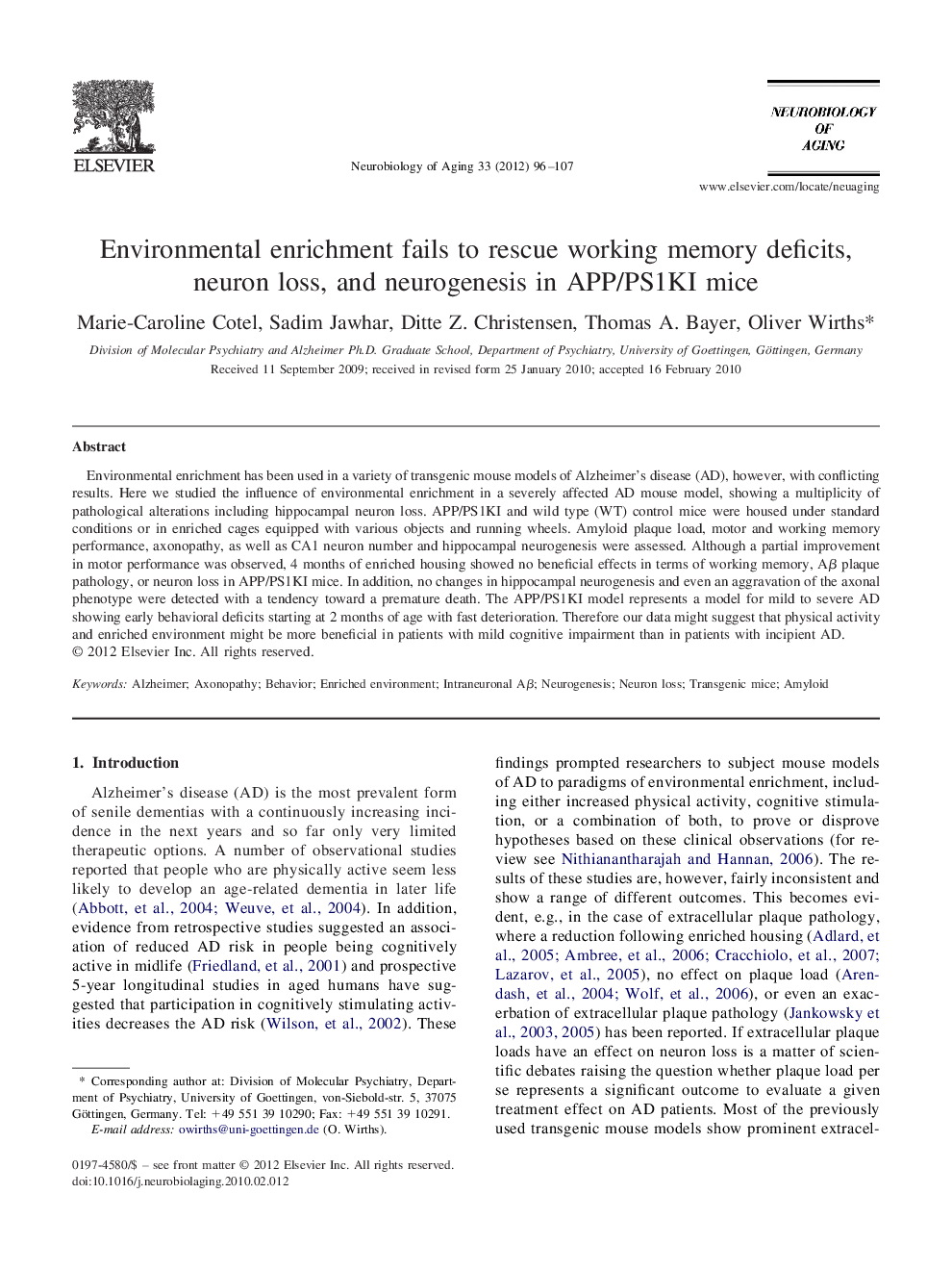| Article ID | Journal | Published Year | Pages | File Type |
|---|---|---|---|---|
| 6809910 | Neurobiology of Aging | 2012 | 12 Pages |
Abstract
Environmental enrichment has been used in a variety of transgenic mouse models of Alzheimer's disease (AD), however, with conflicting results. Here we studied the influence of environmental enrichment in a severely affected AD mouse model, showing a multiplicity of pathological alterations including hippocampal neuron loss. APP/PS1KI and wild type (WT) control mice were housed under standard conditions or in enriched cages equipped with various objects and running wheels. Amyloid plaque load, motor and working memory performance, axonopathy, as well as CA1 neuron number and hippocampal neurogenesis were assessed. Although a partial improvement in motor performance was observed, 4 months of enriched housing showed no beneficial effects in terms of working memory, Aβ plaque pathology, or neuron loss in APP/PS1KI mice. In addition, no changes in hippocampal neurogenesis and even an aggravation of the axonal phenotype were detected with a tendency toward a premature death. The APP/PS1KI model represents a model for mild to severe AD showing early behavioral deficits starting at 2 months of age with fast deterioration. Therefore our data might suggest that physical activity and enriched environment might be more beneficial in patients with mild cognitive impairment than in patients with incipient AD.
Keywords
Related Topics
Life Sciences
Biochemistry, Genetics and Molecular Biology
Ageing
Authors
Marie-Caroline Cotel, Sadim Jawhar, Ditte Z. Christensen, Thomas A. Bayer, Oliver Wirths,
